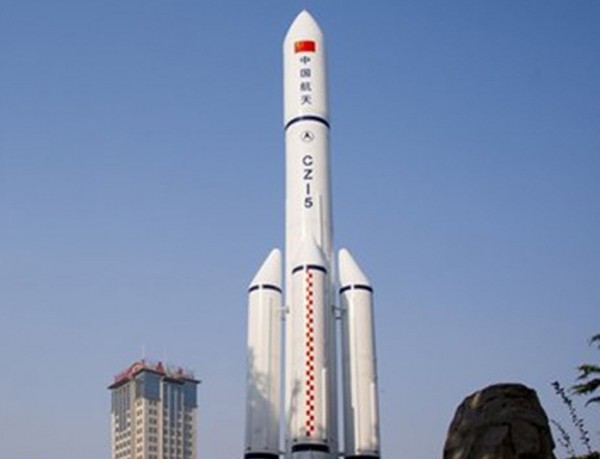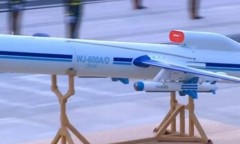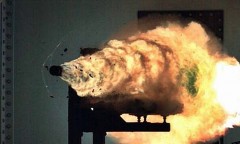By Arthur Dominic J. Villasanta , | March 19, 2017

Long March 5 two-stage rocket.
China plans to develop its own system to recover the first stage of its launch vehicles. But unlike SpaceX that reignites the first stage of its Falcon 9 rocket to land vertically, the Chinese plan to parachute the first stage back to Earth and hope high winds don't destroy it on the way down.
Like Us on Facebook
China's "parachute-assisted landing system" under development by the China Academy of Launch Vehicle Technology (CALT) involves using multiple parachutes stored in the first stage. An airbag will also inflate under the first stage to cushion the impact when the first stage hits the ground.
A large scale test using this parachute-assisted landing system was carried out two years ago, according to CALT. A final decision to deploy this system will be made before 2020.
China wants this system to cut launch costs and make its military-led space program controlled by the People's Liberation Army (PLA) more competitive against international launch providers.
The Chinese said vertical landing such as that undertaken by the Falcon 9 involves too many challenges and is extremely difficult to achieve.
The vertical landing system favored by SpaceX also means carrying extra fuel for the landing, which meant rockets can only carry smaller payloads into space, said Deng Xinyu, a researcher on the Chinese rocket recovery program in a report on the CALT website.
Deng also said Falcon 9 also uses nine small rocket engines to generate thrust, and this reduces the launch vehicle's overall reliability and efficiency.
"The mainstream trend of modern rocket development is to increase the thrust and reduce the number of rocket engine. That is also why China, as well as Airbus, Boeing and Lockheed Martin did not use the technology," said Deng.
Another expert said costs must be cut as China ramps-up its space program.
"Compared to mainstream rockets overseas, Long March rockets in China have lower costs, but with the increase of Chinese space exploration, the costs must be trimmed further," said Bao Weimin, professor of aerospace technology at Peking University and a science advisor to the China Aerospace Science and Technology Corporation.
-
Use of Coronavirus Pandemic Drones Raises Privacy Concerns: Drones Spread Fear, Local Officials Say

-
Coronavirus Hampers The Delivery Of Lockheed Martin F-35 Stealth Fighters For 2020

-
Instagram Speeds Up Plans to Add Account Memorialization Feature Due to COVID-19 Deaths

-
NASA: Perseverance Plans to Bring 'Mars Rock' to Earth in 2031

-
600 Dead And 3,000 In The Hospital as Iranians Believed Drinking High-Concentrations of Alcohol Can Cure The Coronavirus

-
600 Dead And 3,000 In The Hospital as Iranians Believed Drinking High-Concentrations of Alcohol Can Cure The Coronavirus

-
COVID-19: Doctors, Nurses Use Virtual Reality to Learn New Skills in Treating Coronavirus Patients











